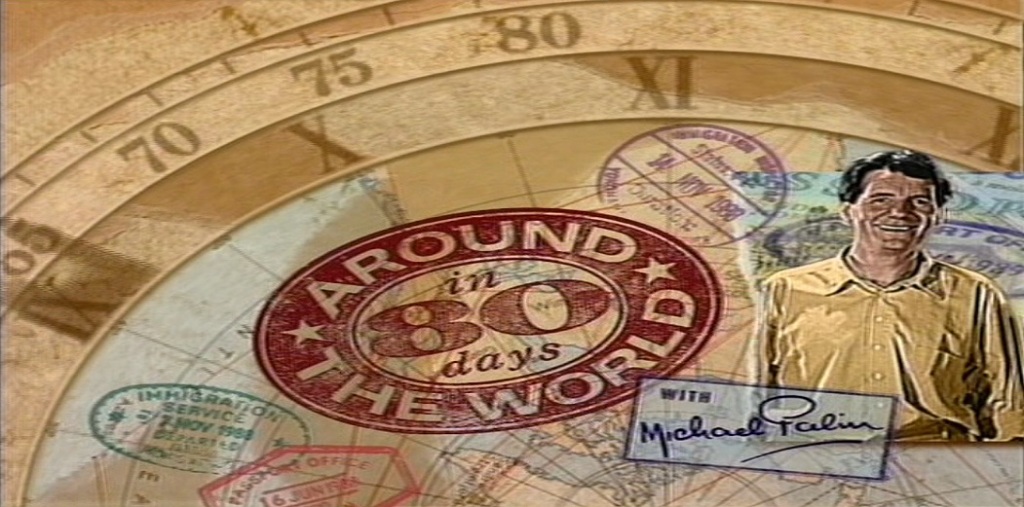
“I spend my life travelling and seeing nothing at all. There’s no time. Air travel is just a way of seeing airports. Real travel is what you buy in bookstands and read about in seat 39k. Whoever nowadays could afford 80 days to go around the world? Well, somewhere in the middle of another flight to another anonymous airport, I decided that perhaps, after all, I could”
Michael Palin, Around The World In 80 Days
Released: 1989
Available: Amazon
Michael Palin, renowned for his contribution to the comedy act Monty Python begun his travel series in 1989 with the release of Around The World in 80 days, a challenge to recreate the fictional journey of Phileas Fogg from Jules Verne’s classic novel of the same name. Inspired by the original novel, Palin accepts a gentleman’s wager at the Reform Club in London, to circumnavigate the globe with the only restriction prohibiting the use of air travel in the alloted schedule and return to England within that time. Following a similar path and itinerary to Phileas Fogg, the intention was to travel using whatever means of transport available in a similar spirit for the adventure of the intrepid fictional explorer of Verne’s novel. Unlike the classic novel, this was a documentary series with Palin’s good humoured and gentle observations on the world around him at a period of time that was a little less easy to accomplish this challenge. Received to critical and commercial acclaim, it instigated a series of travel series across a variety of countries and continents, his most recent series a trip to the isolated North Korean state shining a light onto this secretive nation.
There’s a real, nostalgic charm and almost innocence to the endeavour, in contrast to many travel series which have the polished look and panache of a modern day endeavour, here, everything has the feel of a slapdash expedition, a wide eyed innocence to the challenge and adventure ahead. It benefits from having the challenge posed to given a reason and purpose to watch the series, to see whether Palin succeeds in his endeavour to navigate the globe in the absence of air travel. Whilst as noted in the supporting book to the series Palin had not been the BBC’s first choice in presenter looking to use noted documentarist Alan Whicker for the project, Michael’s genial and relaxed style worked perfectly to defuse and normalise the magnitude of the task. Approaching and overcoming every set back and hinderance with a comedic remark and English reserve. There’s a wonderful sequence in the opening moments where he is packing for his trip and his wife is dismissing the sheer volume of books he had intended to take, its played wonderfully and speaks to anyone who has travelled with their partner and had this conversation in person. If I were contemplating this sort of adventure, I know for certain for all my male bravado my partner would be lovingly steering my packing and preparations.
It speaks to anyone who has longed to travel the world without borders or boundaries, certainly it benefits from preparation and planning in ensuring the connecting boats for instance were in place in addition to his renown ensuring certain expediency through the embassies however everything is done in earnest, there is no attempt to aggrandise the challenge, everything is presented in an open and honest fashion, the prospect of failure very real at multiple points across the trip. There was enough freedom and provision to expand the series length beyond its original order to detail Palin traversing the Persian gulf to Bombay in one of the series most memorable episodes. The series certainly had a nostalgic quality for me, having watched this extensively in my youth with my parents and yet today, arguably it does still stand as one of the pinnacles of the BBC’s travel documentary series, notably aged in terms of the overall visual aesthetic. But the spirit and reasoning for challenge hasn’t changed or diminished, indeed right now with restrictions on travel in place it takes you back to a time when the opportunity to travel on this scale was perhaps not as readily available to all. It’s fascinating to see the world through this prism and the changes we know today transformed these countries in certain places, others remaining largely unchanged three decades later.
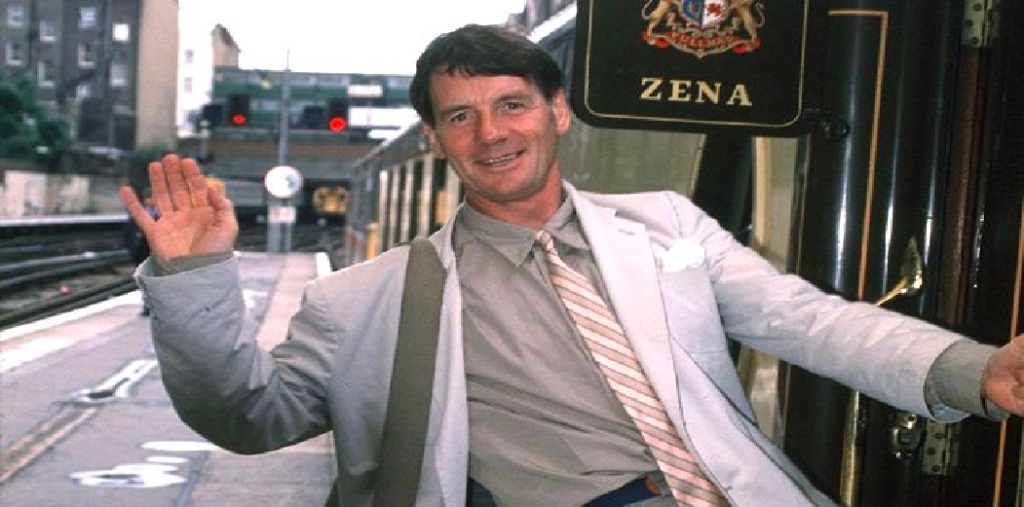
A Golden Age of Travel, A Simpler Time
“He set off with head high, clear eye, never hurried, always calm, but then of course he was fictional. I’ve actually got to do it”
Michael Palin, Around The World In 80 Days
The journey follows a similar trajectory to Fogg’s, beginning at the Reform Club in London and crossing over to Europe across the continent before departing for Egypt. Certainly given the limited nature of the series from a purely personal perspective it would have been interesting to see a little more of these countries but certainly it does become a lot more interesting and indeed more adventurous when the niceties and comforts of the familiar change with passage into Alexandria. From there Michael travels across Egypt to Saudi Arabia, observing respectfully on the differences in cultures between the West and Middle East, ‘life a series of limitations to be observed‘ he remarks passing through Egypt. sailing to India and onto Singapore. Certainly with the limitation of the race and the need to traverse the countries as swiftly as possible there isn’t a great deal of time spent in each destination, in contrast to the travel shows of Portillo for instance which highlights an old or forgotten practise, here only a brief time spent before continuing his journey. Still, it affords him an opportunity to view a soccer game in Cairo, assist refuse collectors in Venice and a party in his honor in Hong Kong. It reminded me of a brief stay in Boston a number of years ago visiting a Red Socks game and immersing myself in local culture through sports, perhaps an easy crutch to use but the familiarity of football and the passion it inspires is universal across the world for the mannerisms and behaviours it induces in its fans.
There is a certain nostalgia to the era of travel depicted in the series, certainly Palin doesn’t travel in a decadent fashion for a majority of his travels but the journey aboard the Orient Express in the opening episode, at that point in time one of the quickest routes across Europe to his first destination was wonderful to see. I have a certain fondness for those old gold and brown Pullman carriages and long to travel this route in my lifetime. It also highlights the period of time, with no connecting tunnel at that point relying on the cross channel ferry to continue towards Venice. As he crossed the Indian ocean between Dubai to Bombay, he sails by dhow, a wonderfully shot episode that epitomizes the point and purpose of the challenge reflecting the journey would have been quicker, especially this section by air however it creates lasting memories and friendships he would return to almost two decades later to visit the crew of the vessel he had sailed with on that passage. In contrast, he experiences the Japanese shinkansen train to Tokyo and hot air balloons in Colorado, perhaps a little self indulging at times but framed in the context of the challenge they serve a purpose and role. Also highlighting to a modern audience the very real limitations travelling at this period in time anyone faced in contrast to the relative ease and comfort we take for granted today.
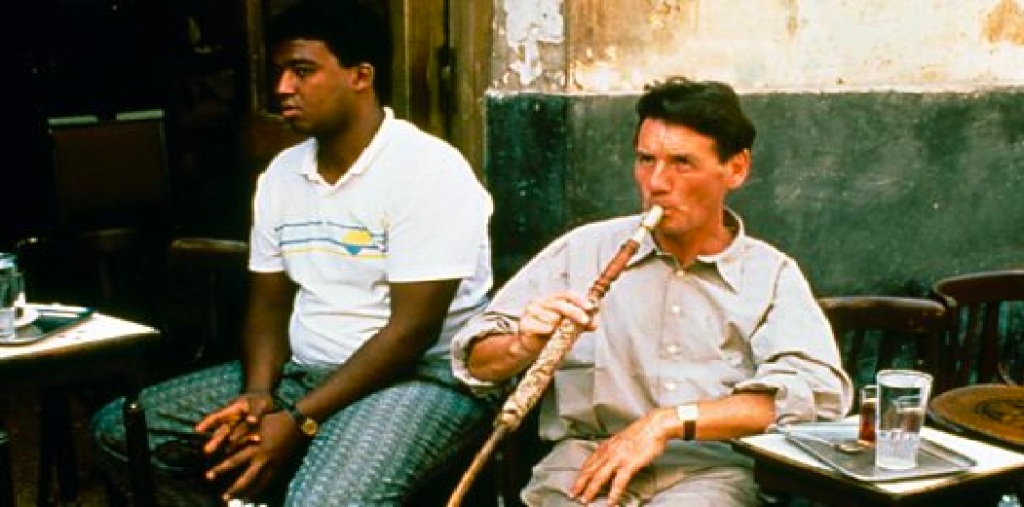
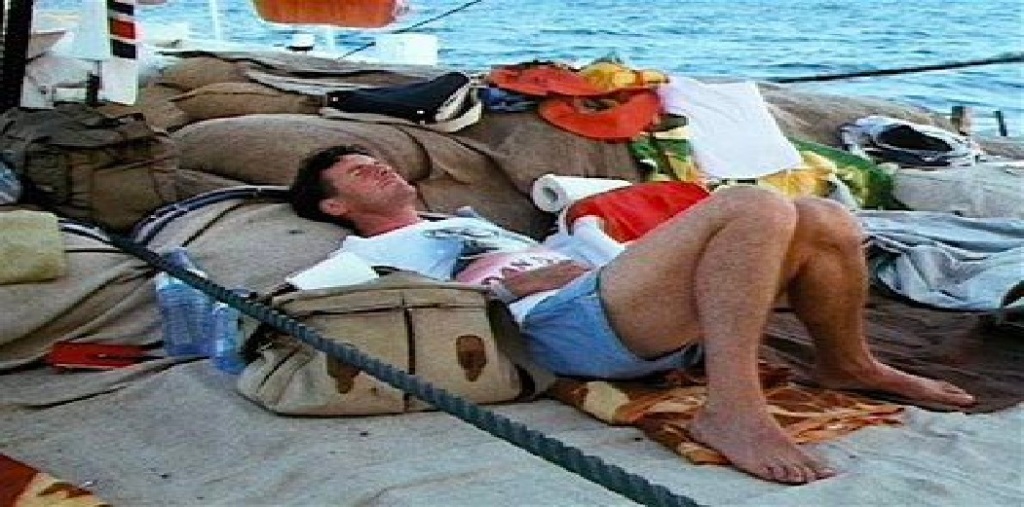
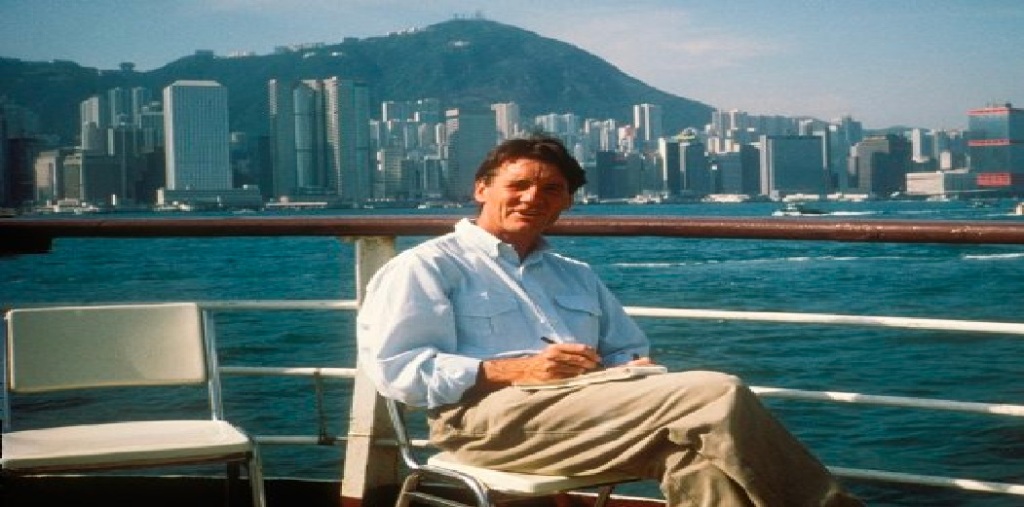
In the absence of cell phones, internet access and an accessible GPS system at his fingertips, nearly every part of the journey relies on paper maps and timetables, when he experiences certain delays or missed connections, these almost archaic charts are fundamental to his progression. I was filled with unease trying to comprehend how I would have resolved the challenge in the absence of a readily available internet connection to rebook transit. Lost travel money for instance, today an inconvenience but then a very real challenge and hindrance to any progress in an age before ATMs allowed near global access to your domestic funds. One of the more fascinating challenges and impediments he encounters was the filming restrictions in place in Saudi Arabia given religious and cultural practises. Thanks in part to assistance from the British embassy, he was able to cross this region to fulfill the remit of the adventure though here the film crew departed continuing this portion of the travel by air whilst he continued by road to the port city of Dubai for his journey to India. In certainly speaks to a country at that point in time transforming with the prosperity of wealth through oil still restricting access to media organisations to film, whether that still is true to this day you imagine it would be easier to film there now and again highlights the challenges encountered during the series.
I enjoyed to varying degrees other series of this nature, the various shows by Michael Portillo are a particular highlight presented in a similar enthusiastic and genial way. Though nearly every other series in the absence of a challenge or purpose for travel presents the host as the central focus, its very much how things are done today. With this series, it was open and transparent whilst Palin was the central protagonist and focal point, he was being supported by a team from the BBC in ensuring, as best they could the challenge was given the best chance for success. It allows you to buy into the authenticity of the series, you may presume of course contacts were put in place in other shows, here they confirm it and it adds a sense of realism to the occasion. I always enjoy peeking behind the curtain to use that adage, to see the mechanics of the show and how it operated. The show does look and feel a little dated today, visually it has a graininess synonymous with that period of time and certainly lacks the clean visual look of shows and series made today. It’s certainly passable and doesn’t detract from the show, given the style and approach it’s also quite bumpy at times, especially in the sequence on the Orient Express you can feel the motion of the train as its moving. The music and central theme was a nostalgic treat, I had a vague recollection of its harmony but listening to it again brought back a lot of memories. Also an appreciation for the variation used with the music adapting to the country and region as he progressed. It’s a small touch but does show the attention to detail in these moments.

Travel Should Never Be To Fast To Notice What’s Going Around You
“At sea you enjoy the voyage, you enjoy the sea. Every day is not the same”
Captain Abbas, Around The World In 80 Days
There is a certain, English gentlemanly charm to the series, whilst it is centred around the premise of a race around the globe with the associated pressures and challenges presented there is still a general sense of ease and and curiosity in its appeal. Certainly, you imagine in other cultures or to a modern audience its main focus would be on the challenge and pressure of the race with the temptation to frame it around progress and constant momentum, here, those moments of genial discussion and reflection that allow you to take in and absorb the cultures and countries he passes through in transit towards his next destination. Given the year and period of time it was filmed in, certainly a number of modern day issues and conflicts are absent to an extent allowing an ease of passage through areas series today would be loathe to film in, passing through the Strait of Hormuz for instance on a dhow to Bombay without the threat from Iran was interesting to see in this historical context. Equally the emerging economy and modernity in Saudi Arabia in its coastal city of Jeddah through the wealth generated by oil was fascinating to see given how its continued to the present day. You take for granted given its approach today in welcoming visitors but at that point as noted it was only accessible through invitation, thankfully a challenge that was overcome with the cooperation of the foreign ministry.
I was glad they expanded the series to focus on the journey through the Strait of Hormuz on the dhow, at a period of time not long after the conflict between Iraq and Iran certainly it wasn’t the most stable area to film but equally is one of the most interesting parts of the series and his travels. As noted during filming, it changes the pace and nature of the series, up until that point there was a constant sense of progress and momentum in his travels, the pressures of timetables and planning but here it slowed down, relying entirely on the tides. From a holistic perspective the change of pace does contrast with the rest of the show, you can imagine today it would be cut or changed to keep a level of consistency so really it’s a testament to the creative vision of the director to keep this part intact. The physical toll of the journey became apparent here, but there was a great sense of communion between Palin, his crew and those aboard the dhow breaking the cultural divide through shared food and music, showing its age perhaps with a moment of levity as Palin share’s his walkman and the music of Bruce Springsteen. You understand why two decades later he chose to revisit them for a one off show to find the crew he sailed and formed that memorable bond with.
Whether the show holds much of an appeal beyond a sense of nostalgia is an entirely personal one, at that period of time it certainly caught this nations imagination bringing a fresh perspective and take on the travel documentary series. In contrast to those focusing on the opulence and decadence of travel for the middle classes who could afford such trips, it felt like a more grounded and humble take on this format that was accessible for those who had the fortitude and determination to undertake a trip of this magnitude on their own. Of course today, with modern technology and accessibility these shows are more common and frequent, the world in the digital age has got a lot smaller and perhaps the sense of adventure has diminished somewhat. Equally, certain countries and regions are a lot more dangerous and threatening in the present day which would such a trip almost impossible to undertake without serious risk to the traveller. For me I can forgive and look past the dated aesthetic and look of the series, certain comedic observations to camera today feeling a little unwelcome or degrading at times. As an artist and performer, despite the more controversial and risque nature of Monty Python, Palin has never come across as anything more than amicable and genial in his style and delivery with a real earnest to make the best of the situation he was in. It’s a rare show you can appreciate and come back to almost three decades later with the same level of enthusiasm and passion, one of my favourite travel series of all time and one that sums up the English attitude to adventure in every sense of the word.

This is an Amazon Associate link and allows me to continue to run Comfortably Adventurous for your enjoyment.
If you’ve enjoyed reading this blog please come and visit and ‘like’ the Comfortably Adventurous Facebook page and contribute your feedback and comments, the interaction for those that have enjoyed and found these articles informative helps beyond measure. Alternatively join me in the Twitter Universe if you enjoy a good tweet or two.



Okay, I need to watch this series, as this is amazing!
LikeLiked by 1 person
Thank you reading and I hope you enjoy it to 😊
LikeLiked by 1 person